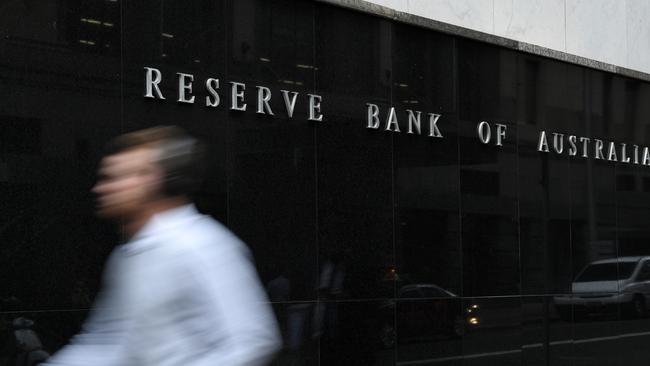Coronavirus: ASIC limits trades, as RBA to pump more cash into markets
In highly unusual moves, investment banks are told to limit trades, while the RBA pledges to pump billions into inter-bank lending.

The Reserve Bank has pledged to pump billions into the inter-bank lending market in a highly unusual intervention designed to smooth out volatile ructions in the financial system amid the coronavirus crisis.
Compounding the regulatory action, the Australian Securities and Investments Commission has also told the biggest investment banks in Australia to “limit the number of trades executed each day until further notice” after the financial markets were overwhelmed by record-setting trading volumes last week.
ASIC has held discussions with a handful of high-frequency trading firms after the ASX was swamped with trading activity on Friday.
Sources said ASIC had asked the high frequency trading houses to “tone it down” and reduce the “throttle” on their algorithms due to the strain the trading volume put on clearing and settlement through the ASX.
High frequency traders will still be able to push activity at 75 per cent of Friday’s record day, but the ASIC move is designed to keep the market functioning for other institutions and retail shareholders.
In a statement released before the open of trade on Monday, the Council of Financial Regulators announced a swag of measures designed to keep the financial system operating in the face of the unprecedented disruption to normal operations.
The CoFR, which counts among its members Treasury, the RBA, the Australian Prudential Regulation Authority and the Australian Securities and Investments Commission, said it would be meeting with the nations’ biggest banks later this week to discuss how they could keep their loan books open “through this challenging period”.
The council also hinted Australia’s top financial watchdogs would likely delay “regulatory initiatives” to give the banking sector breathing space to keep the economy functioning and would take a lighter touch when enforcing the law as COVID-19 continues to disrupt business operations.
The RBA said that “until further notice” it will be scooping up one-month and three-month repurchase operations, known as repo, which provides short-term cash in the inter-bank lending market. It also said it will be conducting repo operations of six-months maturity “or longer” at least weekly or “as long as market conditions warrant’’.
Repo agreements take place when commercial lenders temporarily swap collateral assets such as bonds, bank notes, or residential mortgage-backed securities, in return for cash from the central bank.
While the RBA regularly steps into the one-month repo market, it is unusual for it to provide extra liquidity in the three-month repo market, let alone the six-month market.
The RBA on Friday added $6.91bn of net liquidity to the financial system via daily repo repurchase agreement operations in an attempt to calm pressure on financial markets amid some of the wildest swings on record.
In a separate statement, ASIC said it would be requiring investment banks to “reduce their number of executed trades by up to 25 per cent from the levels executed on Friday” when the ASX swung in a wild trading range of almost 15 per cent.
“This action will require high volume participants and their clients to actively manage their volumes. We do not expect these limits to impact the ability of retail consumers to execute trades,” ASIC said.
ASIC said it had been “closely monitoring” financial markets amid record trading volumes over the last two weeks to “ensure they remain fair and orderly”.
“While there was no disruption to market operations on Friday, there was a significant backlog of work required to be undertaken over the weekend by the exchanges and trading participants,” ASIC said.
“If the number of trades executed continues to increase, it will put strain on the processing and risk management capabilities of market infrastructure and market participants,” the regulator said.
The CoFR said the Australian Prudential Regulation Authority was “ensuring banking institutions preposition themselves to take advantage of the RBA’s supportive measures”.
“The council will be emphasising the importance of a continuing supply of credit, particularly to small businesses. It will be also discussing with the lenders whether there are impediments to lending that council members could help to address,” the statement said.
Both the corporate watchdog and the prudential regulator will “where warranted” provide relief of waivers from regulatory requirements”, including laws tied to secondary capital raising, annual general meetings and audits.
“Banks and other lenders are therefore encouraged to work constructively with affected customers during any period of disruption. For their part, APRA and ASIC will take account of the circumstances in which lenders, acting reasonably, are currently operating during the prevailing circumstances when administering their respective laws and regulations,” the council said.
The Australian Securities and Investments Commission said it would work with banks and insurers to fast track the payment of outstanding remediation to customers “as soon as possible”.
The CoFR is due to meet this Friday for its regular quarterly meeting, after which another statement is likely to be produced.
“The council and the Australian treasurer are also holding teleconferences at least weekly.”



To join the conversation, please log in. Don't have an account? Register
Join the conversation, you are commenting as Logout